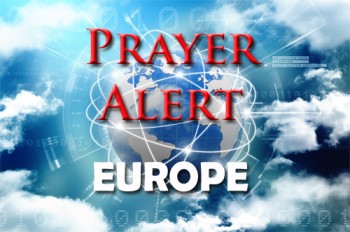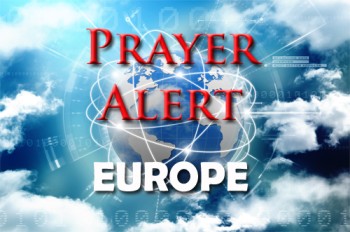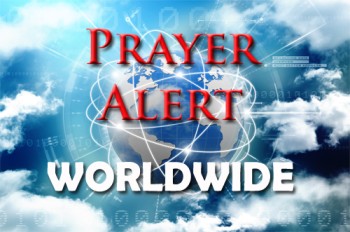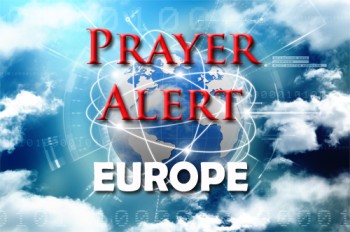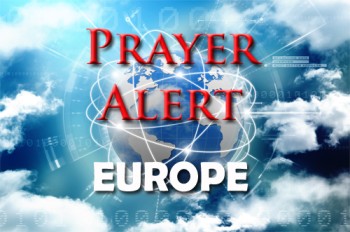Displaying items by tag: Europe
Russia: many more soldiers accused of murder
Independent news outlet Vyorstka has reported a huge uptick in the number of Russian soldiers facing trial for murders committed outside the conflict zone in Ukraine. At least 147 soldiers went on trial for murder between January and September, compared to the 15 murder cases heard against soldiers in military courts in all of 2022. Court verdicts from this year indicate that most soldiers facing trial committed murders under the influence of alcohol. In one case an intoxicated soldier killed a woman with a Kalashnikov assault rifle after learning that she did not support Moscow's invasion of Ukraine. He was sentenced to nine years in prison in March. It is unclear whether the figures cited by Vyorstka include members of the Wagner mercenary outfit, which recruited prison inmates to fight in Ukraine in exchange for pardons. Among the weapons used in the murders were knives, axes, pistols, and Kalashnikovs.
Youth vs Europe: 'unprecedented' climate trial
Six young people from wildfire and heatwave-affected areas in Portugal have taken 32 European governments to court, accusing them of violating their human rights by not taking sufficient action on climate change. The case, filed in September 2020 against all the EU member states and also Britain, Switzerland, Norway, Russia, and Turkey, is the largest climate case ever heard by the European Court of Human Rights (ECHR) in Strasbourg. A ruling is expected in the first half of 2024. The applicants argue that the failure to address climate change endangers their rights to life and physical and mental well-being. One of the applicants, 15-year-old Andre Oliveira, highlighted the impact of heat extremes on his ability to exercise and spend time outdoors, leading to sleep difficulties and worsening conditions due to weak climate policies.
Ukrainian forces’ ‘success’ near Bakhmut
Ukrainian forces have reportedly achieved success in villages near Bakhmut, a key town previously seized by Russian forces. According to Ilia Yevlash, spokesperson for Ukraine's forces in the east, Russian troops fired on Ukrainian soldiers 580 times and used aircraft four times. Ukrainian troops have made significant progress, with defenders continuing to repel the enemy under heavy fire. The spokesperson claimed that 141 Russian troops were killed and several pieces of artillery equipment destroyed. Ukrainian forces in the south are reportedly preparing to advance towards the Sea of Azov, prompting Russian forces to bring in reserves. Volodymyr Zelenskiy commended the successes in his recent address, noting damage to Russian logistics and headquarters. Additionally, Ukraine has conducted attacks inside Russia and Russian-occupied Crimea. The counteroffensive operations launched in early June have resulted in gains in eastern and southern regions, despite the challenging conditions of heavily mined and destroyed areas.
Russia: Navalny loses appeal against 19-year jail term
Russian opposition leader Alexey Navalny has lost his appeal against a 19-year prison term, which was added to his existing sentence last month. The ruling was upheld by a Moscow court, with the proceedings closed to the media except for the reading of the verdict. Navalny, considered the most prominent figure in Russia's opposition movement, has been seen as a symbol of hope for many, with supporters likening him to Nelson Mandela. His political movement has been banned, and key figures have either been jailed or forced to flee the country as part of a government crackdown on dissent. His latest sentence was imposed on charges related to alleged ‘extremist activity’, which he denies. He was already serving an 11-and-a-half-year sentence on fraud charges, which he also described as politically motivated. Navalny's appeal rejection comes despite international admiration for his return to Russia after being poisoned with a nerve agent in Siberia, an act he attributes to the Kremlin. The Russian government has sought to diminish Navalny's political significance and portrays him as an extremist and a puppet of foreign intelligence agencies.
Niger: Macron orders military exit
French president Emmanuel Macron has announced the withdrawal of French troops from Niger and the repatriation of the French ambassador, following a military coup in the country. He stated that France would end its military cooperation with the de facto authorities in Niger, citing their lack of commitment to fighting terrorism. The decision comes after weeks of tensions with the junta and a deteriorating situation. Macron specified that the soldiers stationed in Niger would return to France in an orderly manner over the coming weeks and months, with the goal of completing the withdrawal by the end of the year. The announcement was met with joy in Niamey, the capital of Niger, as thousands of people rallied in support. Macron's decisions were made in coordination with Nigerien president Mohamed Bazoum, who remains under house arrest, and leaders of the Economic Community of West African States (ECOWAS).
Germany: shortage of teachers
As the new school year begins in Germany, the biggest problem is still the nationwide shortage of teachers. This could be remedied, for example by employing career changers, having larger classes, and using more hybrid lessons (partly online). But this increases the risk that the existing teachers may suffer illness or even resign and makes the general atmosphere and conditions for the students to learn well in lessons more challenging. In addition, due to measures introduced during the Covid crisis, learning deficiencies and mental illnesses have increased significantly among children and young people. The fear of being infected by Covid has now been replaced by fears about climate change and the apocalypse (the world coming to an end). These take away motivation and willingness to learn. The building of a world for tomorrow requires not only discipline, but above all a vision.
King Charles’ visit to France
On 21 September, King Charles III followed in his mother's footsteps by addressing lawmakers in the French upper chamber, the Senate. He focused on a message of unity between France and the UK, ending with a personal pledge to strengthen what he described as the ‘indispensable’ relationship between the two countries during his time as monarch. He also suggested that France and Britain should team up to jointly tackle the climate and biodiversity emergencies with a new version of the 1904 Entente Cordiale pact that sealed the friendship between Paris and London. The king’s speech, which he delivered in English and French, received a standing ovation as it came to a close.
Poland / Ukraine: dispute over grain escalates
One of Ukraine's staunchest allies, Poland, has said it will no longer supply weapons to its neighbour, as a diplomatic dispute over grain escalates. The dispute began after the Russian invasion forced Ukraine to find alternative overland routes, which led to large quantities of grain ending up in central Europe. Consequently, the EU temporarily banned imports of grain into five countries to protect local farmers, who feared Ukrainian grain was driving down prices. The ban ended on 15 September, but Hungary, Slovakia and Poland decided to keep on implementing it. Remarks by President Zelenskiy at the UN, that it was alarming how some of Ukraine's friends were ‘making a thriller from grain’, have been denounced by Warsaw as unjustified. Prime minister Mateus Morawiecki was adamant Poland was helping Ukraine defeat the ‘Russian barbarian’ by maintaining a military hub, but he said he would not agree to Poland's markets being destabilised by grain imports. Ukraine has filed lawsuits with the World Trade Organisation against the three countries over the bans, which it says are a violation of international obligations.
Hungary: a Christian democracy?
Prime minister Viktor Orbán believes Europe can be saved if it returns to its ‘real values, its Christian identity.’ He said, ‘We Hungarians believe that Christian culture is the cornerstone that holds the architecture of European civilisation in place’. Hungary differs from Europe in its attitude to illegal immigrants. While resisting the influx, it tries to help people to live and thrive in their own countries by rebuilding schools, hospitals and dwellings in troubled parts of the world and providing education at Hungarian universities for young people. Orbán has said, ‘Hungarian people and their government believe that Christian virtues provide peace and happiness to those who practise them. This legacy obliges us to protect Christian communities persecuted across the world as far as we are able.’ Hungary also bans the teaching of homosexuality in schools, which Emmanuel Macron says is ‘not in line with Europe’s values and what Europe is’. The country has moved from Soviet domination through post-communist chaos to Christian democracy.
Russia: Putin seeking military aid from North Korea
Vladimir Putin and Kim Jong Un toasted their friendship with Russian wine after Putin showed Kim around the country's most modern space launch facility. Kim is currently in Russia, where he has vowed to support the Kremlin's ‘sacred war’ against Ukraine, raising concerns that the two nations could bolster their military capabilities. At the end of the reception, Kim courteously invited Putin to visit the DPRK at a convenient time. Putin accepted the invitation with pleasure and reaffirmed his desire invariably to carry forward the history and tradition of the Russia-DPRK friendship. They also held talks alongside their defence ministers and called each other ‘comrades’. The growing friendship has concerned the West that North Korea will supply Russia with weapons. The USA said that this visit has made it clear that Putin will set aside any concern to achieve victory in Ukraine. If an arms deal was reached, the USA would slap additional sanctions on them. In a further surprise development, Kim has extended his stay in Russia: see

